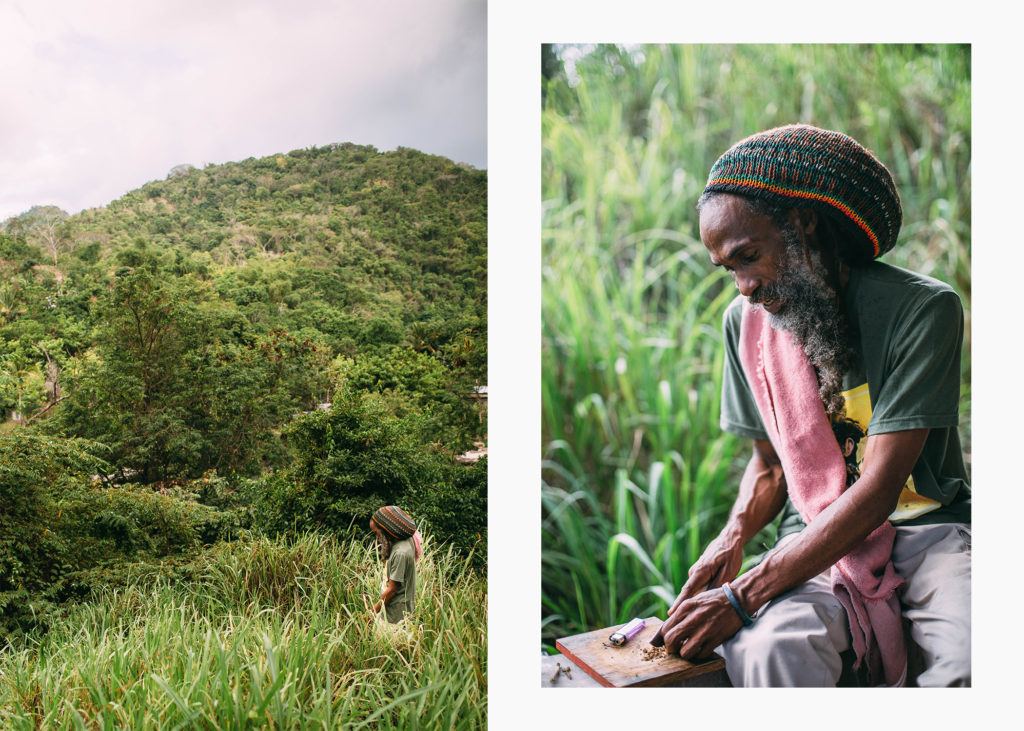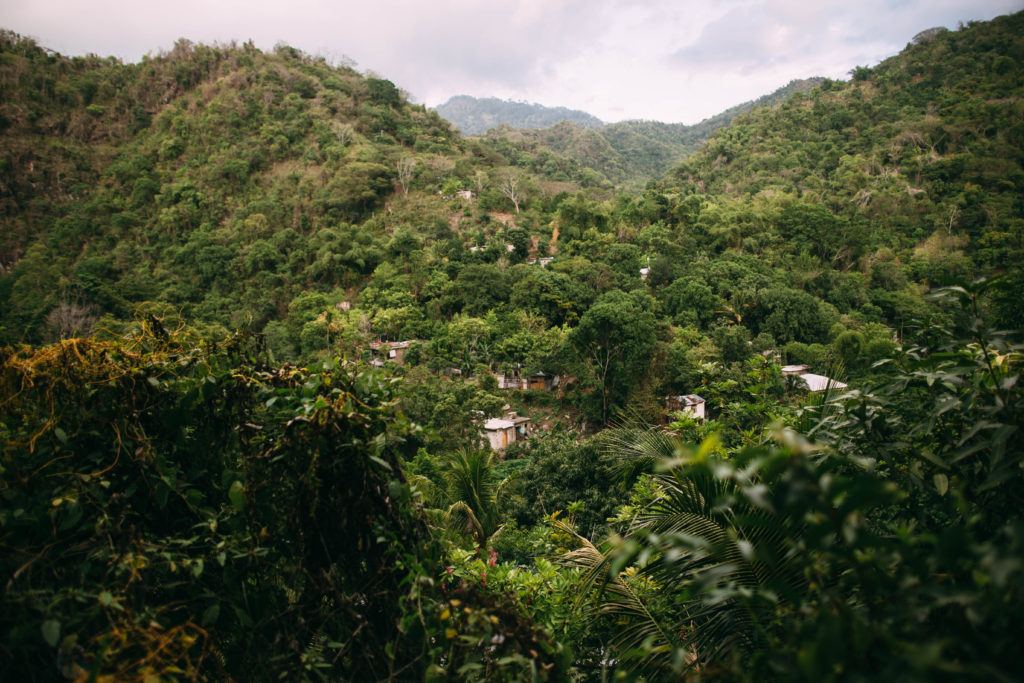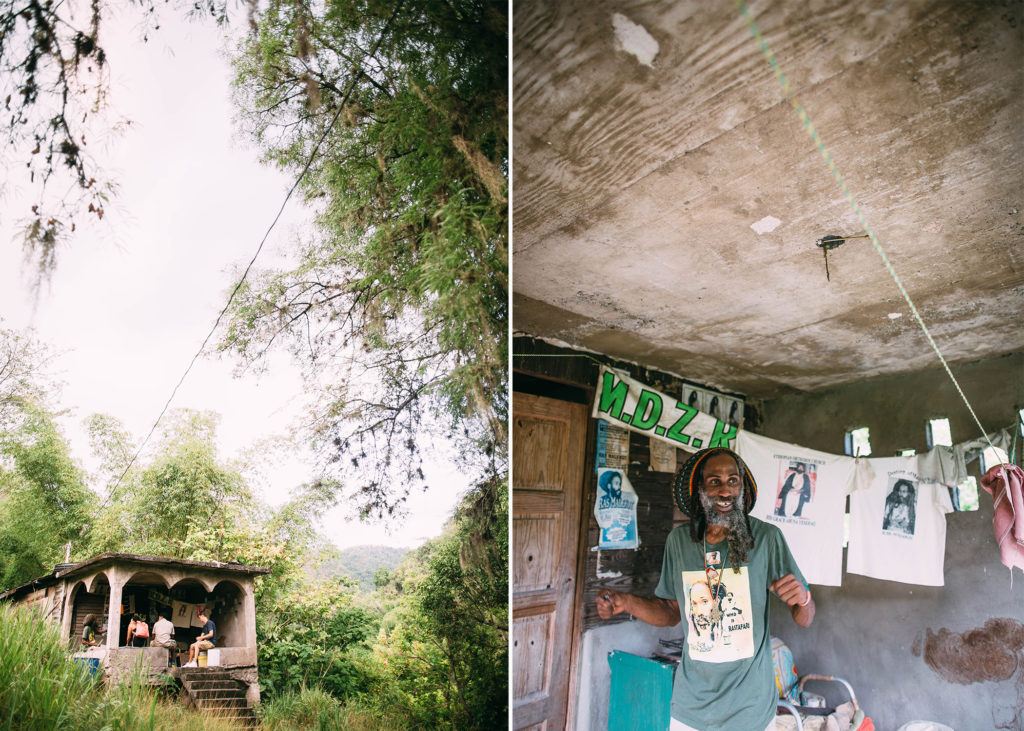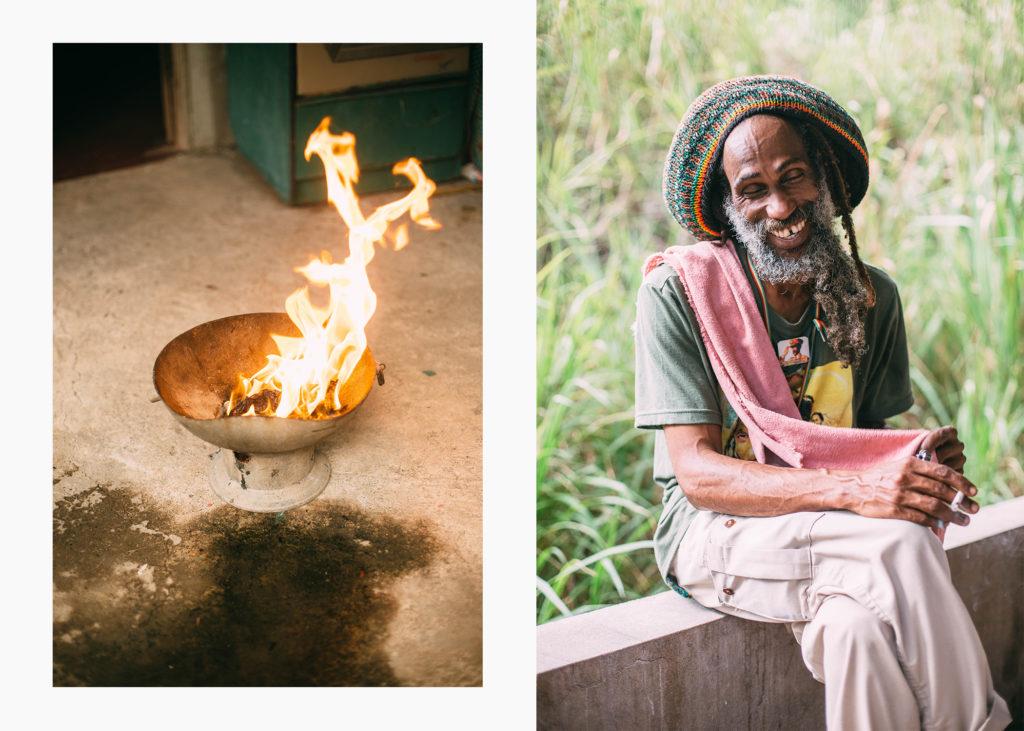What it Means to be a Rasta in the 21st Century
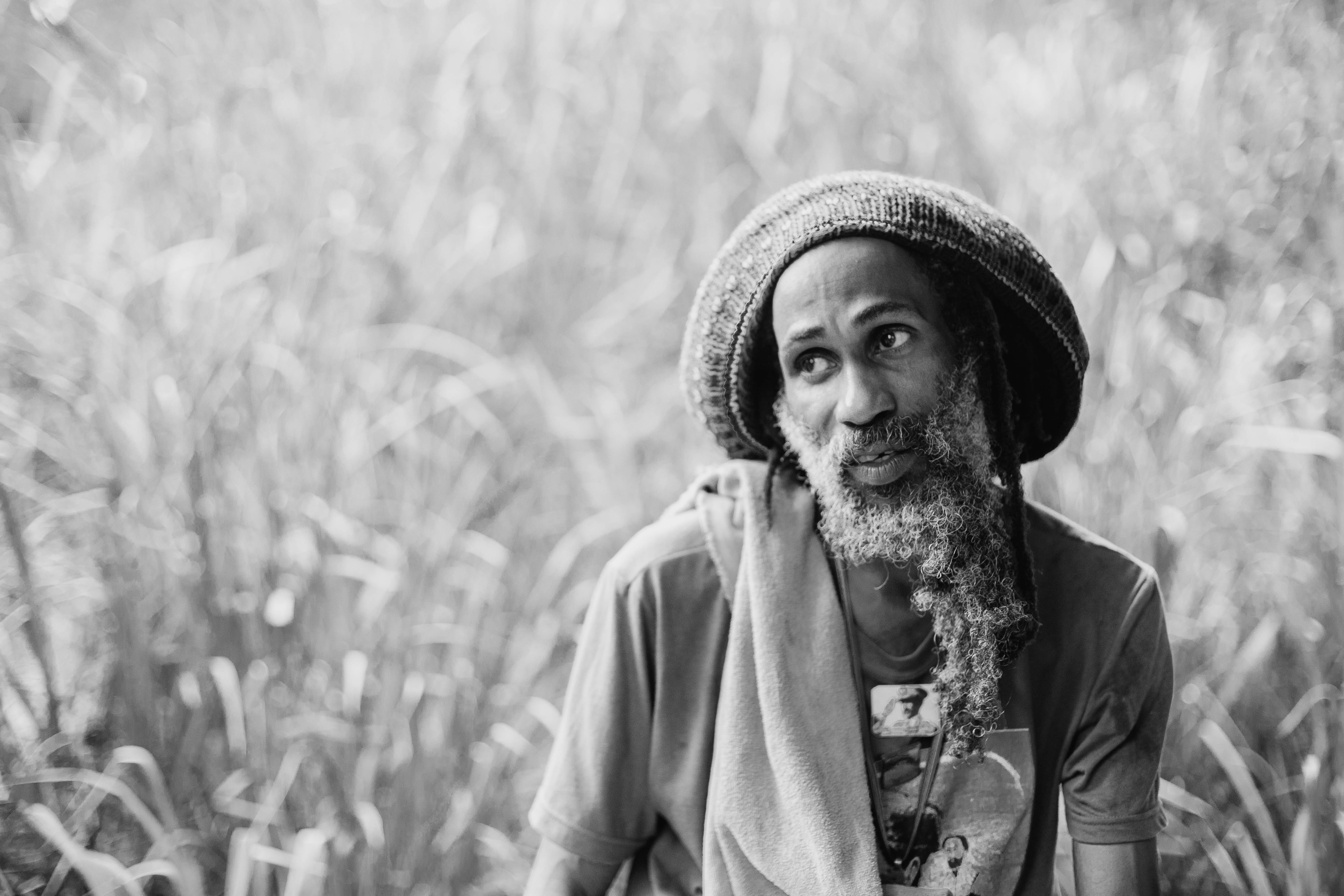
Ras Malekot is a local personality in Kingston: He’s a devout Rasta, poet, writer, craft maker and recording artist. At the foot of the Blue Mountains, he owns a tiny shop where he sells old records, knitted hats, souvenirs and root tonics (a wellness drink made herbs and roots, blended with honey or molasses). Outpostings is a big fan of the Rasta movement, and so we caught up with Malekot to “reason,” which in the Rastafari culture means gather, smoke marijuana and discuss a number of varying topics. In his humble home—with no tv, running water or electricity—Malekot explained what it means to be a Rasta today.
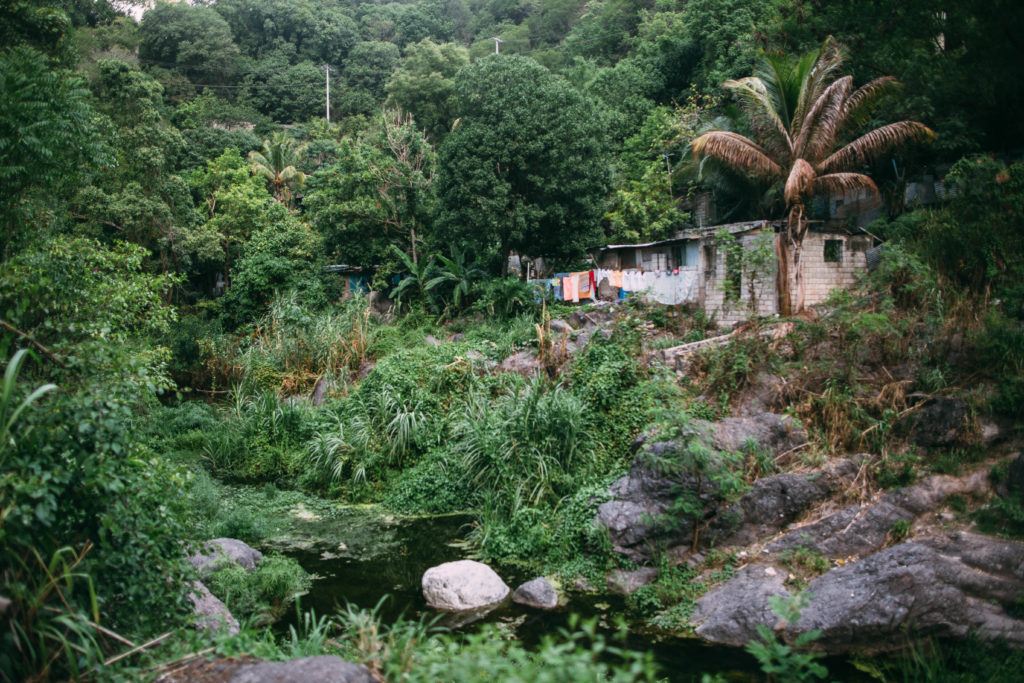 A simple home in the Blue Mountains.
A simple home in the Blue Mountains.
On why he chooses to live a simple life:
“I choose to live in the hills because I don’t like city life. My father lives in America, and he wants me to come join him, but I like quietness. I’d rather be surrounded by nature than cars and buildings and smoke. I love waking up to a peaceful environment. I’m always seeking peace in my soul as Rastafari. I live a very simple life, as you can see. A few people up here have commercial items in their houses. Some have television sets, maybe a refrigerator. Not much though.”
Malekot walks through the terrain to get to his home.
On the decriminalization and potential legalization of marijuana:
“It’s one step at a time. They’ve made concessions for a Rasta to carry two ounces legally. But according to the law we are still not free because they have set up a ticketing system. It’s only a matter of time before they start handing out tickets. The whole point [of decriminalization] is that when you are caught with a spliff, it’s not a criminal offense. You don’t have to go to the station and take fingerprints and go to a court of law. It is now a ticketable offense. Honestly, we aren’t being harassed so far with the new law. We feel there is a level of freedom has been granted to us. It’s going to take some time for it to be legalized. It won’t just happen like that.”
On the Rastafari movement today:
“Not many of the young people are gravitating towards Rastafari in its fullness. The kids are bleaching themselves or having their ears pierced. [Rastas do not believe in cutting their hair, piercing their skin or marking the body with tattoos.] And they love artists like Vybz Kartel [a Dancehall artist known for violent music]. They like to sag their pants off their waist. I don’t understand what’s happening. Growing up, we heard the messages of positiveness from the ambassadors of music, and we were more inclined toward these teachings. We wanted to stand up for the fullness of the culture that they were promoting. But it’s not the same now. They aren’t giving their energy to reggae and the rasta music. Their energy is on their phones. We were more aware because of Marcus Garvey, and Bob Marley and his music. It’s up to those who are Rastas to groom their child to continue the movement.”
View of Malekot’s home (left); Inside his home (right).
On the future of the Rasta movement:
“The Rasta movement will never die. It may be less popular with younger people in Jamaica, but worldwide? Rastafari is massive and undying. The music, the fullness of the culture, the way of life, the things we eat—it’s of more importance to people overseas sometimes. It’s massive that a Rasta could be from Brazil, or live in South Africa. There are many Rastas in England. It’s not a fad, either. The culture will never die. It’s ever-flowing and dominant. Being a Rasta isn’t about color. It’s not for black people or white people. It’s a state of identifying. It’s a philosophy of life. Bob always sang that the Rastaman vibrations are positive. Gradually, everyone is beginning to realize it.”
An intimate moment with Malekot on his front porch.
Follow Ras Malekot on Facebook.
